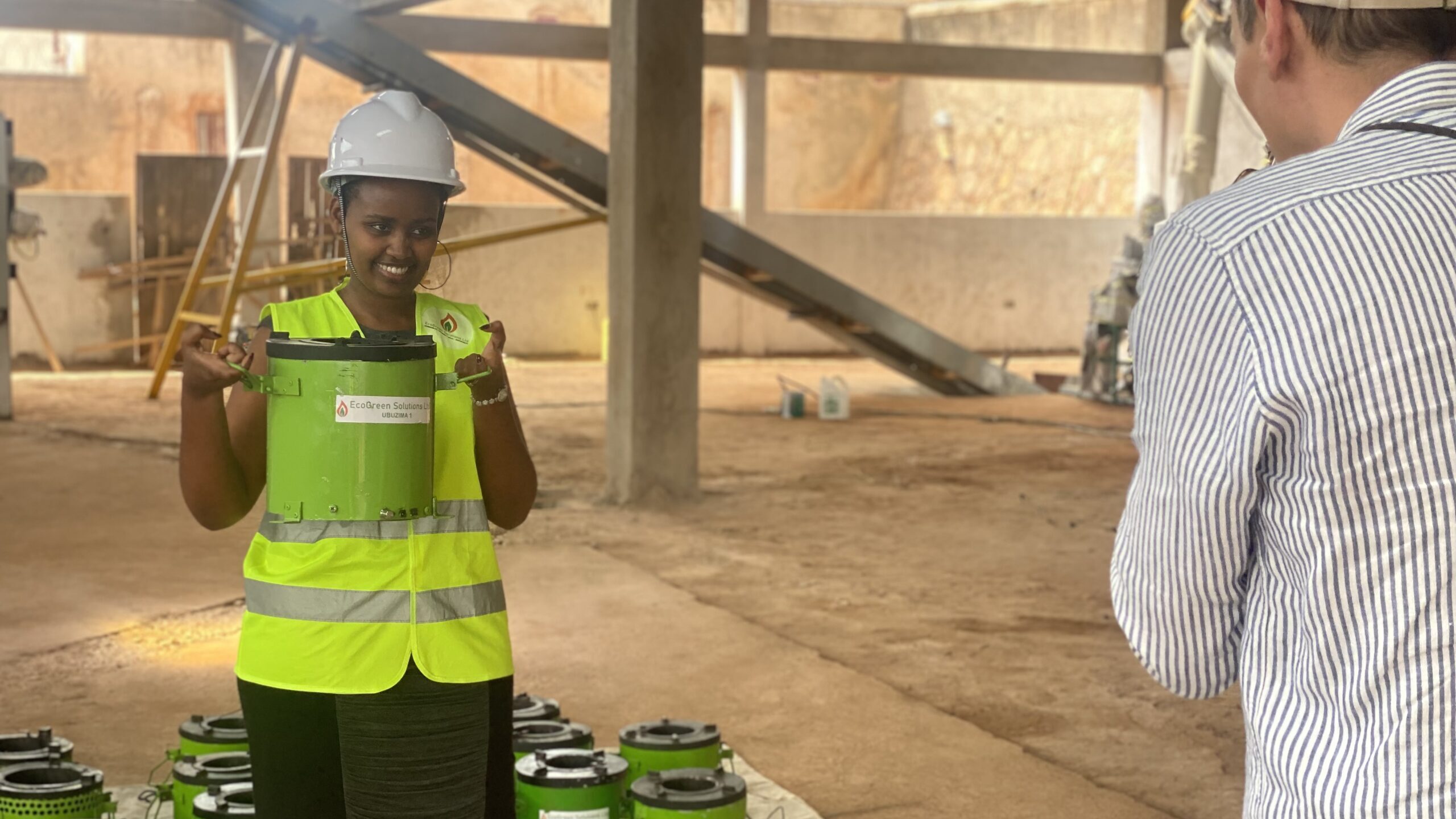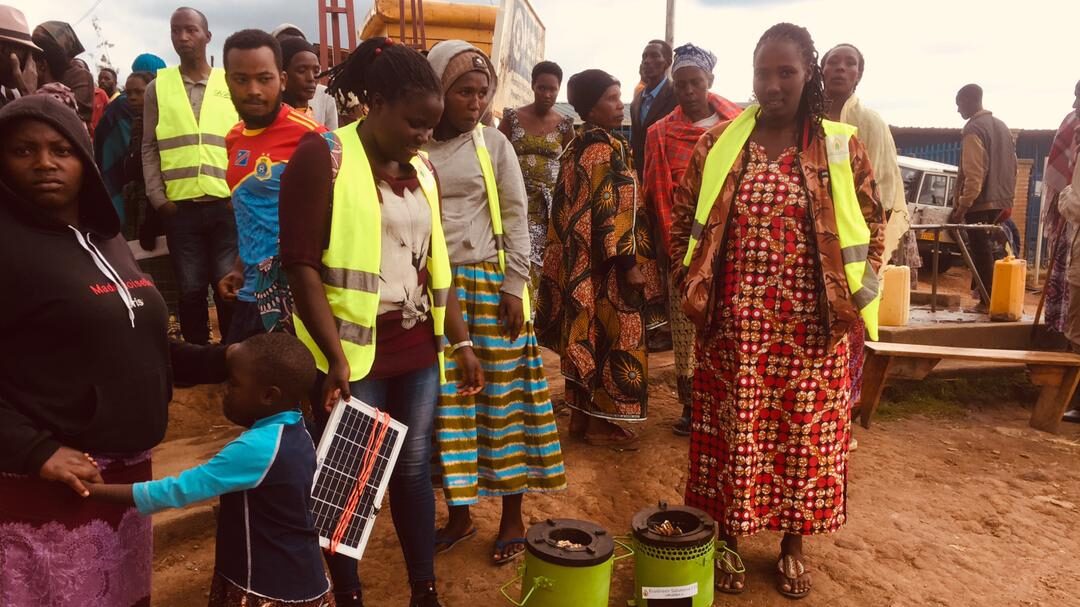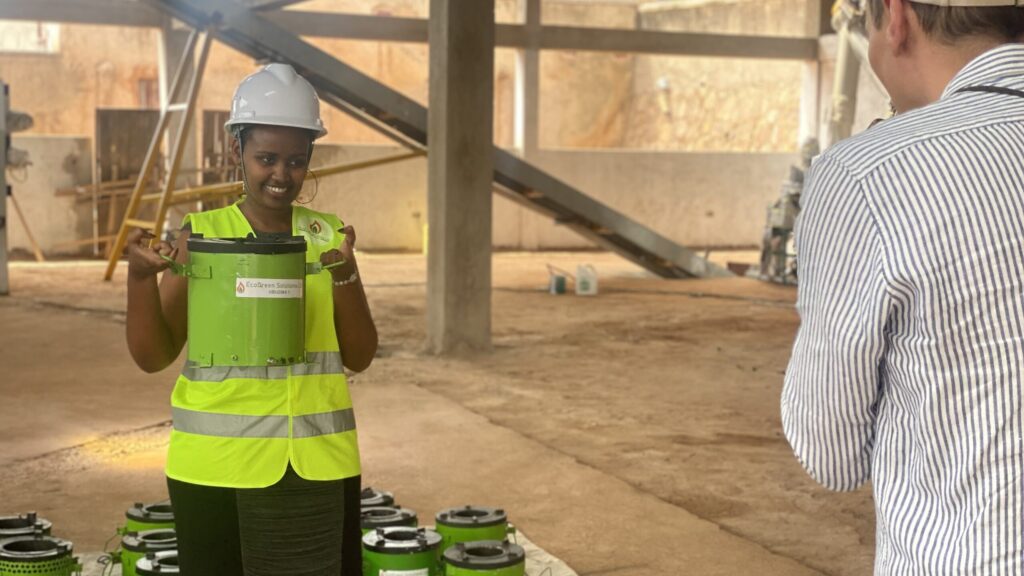Integrating Clean Cooking for Peace, Justice, and Sustainability
Anitha Umutoniwase is the Founder and CEO of EcoGreen Solutions Ltd, a Rwandan-based company that manufactures and distributes improved cookstoves and efficient fuel pellets. Her diverse background in business, human resources, and social justice enables her to address the pressing challenges of energy poverty, sustainability, and socioeconomic inequality.
CCA spoke to Umutoniwase about her unique journey from peace and justice advocate to entrepreneur defying the odds of gender inequity in the clean cooking sector.
This story is part of a series showcasing women leaders in the clean cooking sector.
Through her experience working in refugee camps in Rwanda, Umutoniwase directly witnessed the need for clean cookstoves in displacement settings.
“Refugees shared the hardships they experienced from using polluting stoves, such as children missing school and having inadequate meals because of a lack of firewood in rainy seasons,” she said. “Women spend hours each day collecting cooking fuel, risking their safety and increasing their vulnerability to gender-based violence,” she said.

Umutoniwase’s unwavering passion for human rights and combating climate change drove her pursuit of a clean cooking initiative. In 2020, she established EcoGreen Solutions Ltd, a company providing clean, efficient, safe, and affordable cooking technology in humanitarian settings and across Rwanda. EcoGreen Solutions now works with two refugee camps in Rwanda and plans to expand to three more this year.
Umutoniwase recognizes that availability and affordability are not the only challenges to the widespread adoption of clean cooking technologies. Resistant attitudes, especially in rural areas, also hinder implementation. “People need more awareness of the health and environmental risks of traditional cooking methods and the benefits of clean cooking technologies,” Umutoniwase shared.
At the same time, “governments, businesses, and donors should provide customer education programs to facilitate learning, adoption, and sustained usage of clean cooking to improve households’ confidence with clean cooking technologies,” she urged.
Umutoniwase also stressed the importance of working at the community level by “involving opinion leaders or creating new figures such as ‘clean cooking ambassadors’ willing to share knowledge, best practices, experiences, and skills to promote the use of clean cooking in communities.” She points to the success of similar initiatives elsewhere in Rwanda, where programs and support from the private sector have helped increase awareness and access to clean cooking technologies.

To encourage more women to enter the clean cooking ecosystem, Umutoniwase emphasizes the importance of boosting women’s self-confidence through technical skills, academic programs relevant to the energy sector, entrepreneurship, and management training. “Educating women about the benefits of clean cooking and the opportunities it presents for financial independence and growth is crucial,” she said.
Umutoniwase’s advice to girls and women considering careers in entrepreneurship and clean cooking is to defy traditional gender roles and stereotypes. “The outdated notion that women and girls are confined to domestic roles and home chores is no longer a reality,” she said. “While men disproportionately dominate the clean cooking sector, Women should have the courage to change this narrative because we are the ones most affected by polluting cookstoves and fuels.”

